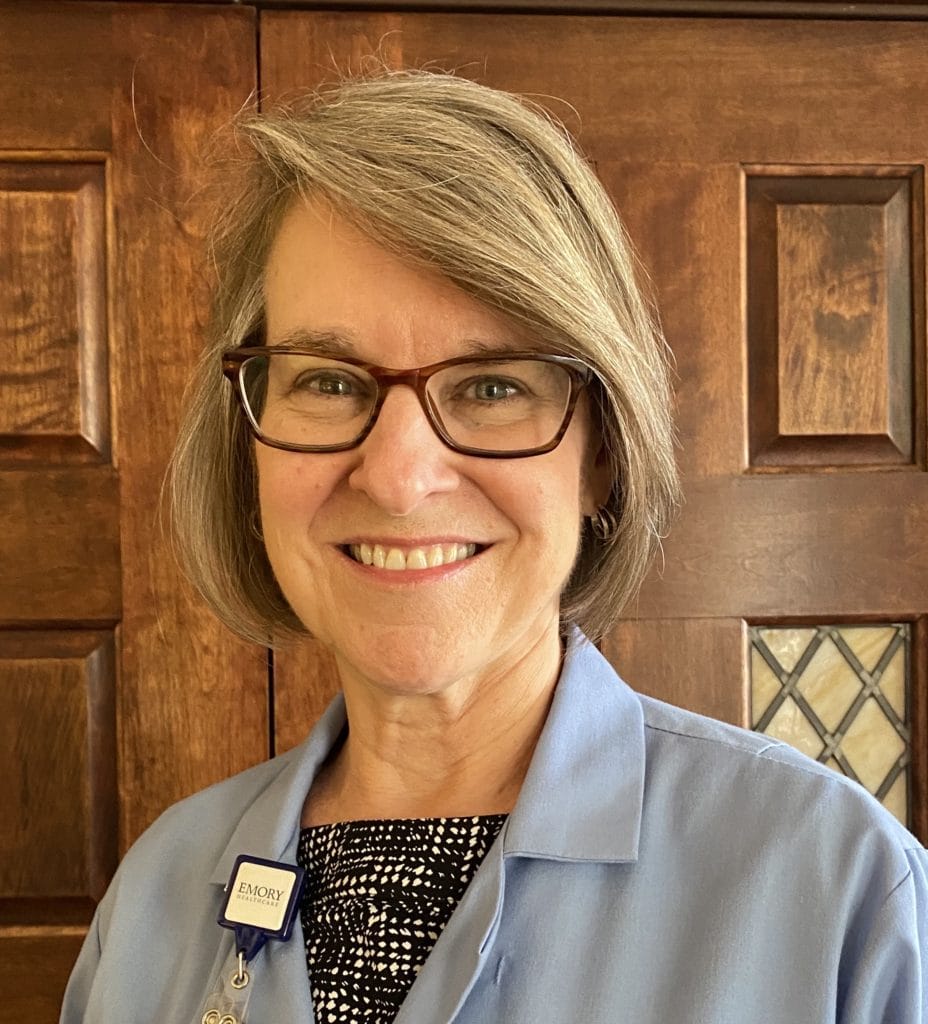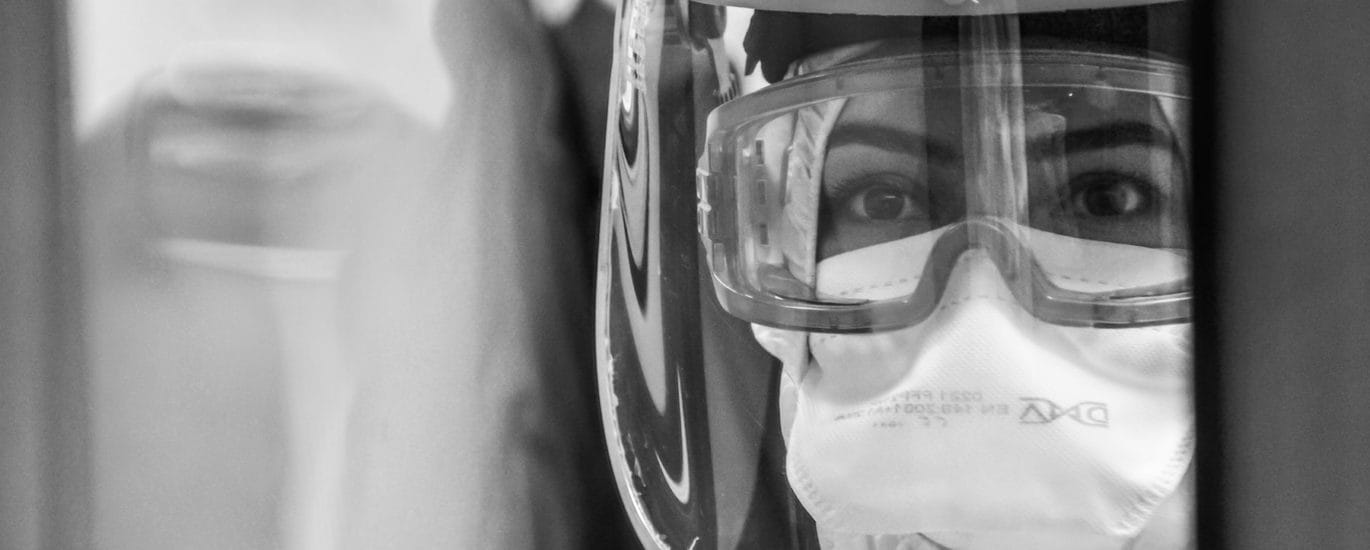by Beth Jackson-Jordan
I serve as Director of Spiritual Care for a multi-hospital operating unit in a large urban healthcare system. A few months ago as the nurse staffing shortage reached crisis level, our hospital leadership became concerned about the level of stress on nursing leaders. As part of the response, chaplains were asked to help facilitate ‘leader debrief meetings’ providing space for leaders to talk honestly as they tried to cope with the staff shortage and supply chain issues that impacted daily care management. At my invitation, senior leaders attended these meetings and shared honestly from their own struggles to lead through the pandemic. In response, many mid-level leaders also opened up about how overwhelmed they felt trying to manage so much that was out of their control. I had a number of leaders express appreciation for these meetings and the opportunity to be vulnerable. They spoke of the need to hear from their colleagues going through similar challenges and to feel solidarity with each other.
In the over thirty years that I have served as a chaplain in various healthcare settings, supporting staff has always been a part of my role. To a large degree, that support has occurred informally by building relationships and checking in with staff especially during times of high stress or critical events. It has also included more structured forms of support such as leading memorial services, providing ‘Tea for the Soul’ events, offering the ‘Blessing of Hands’ ritual and programs to teach resiliency skills.
Over the pandemic, the level of suffering for our staff became so critical that staff support became one of our greatest priorities as chaplains. We implemented additional support interventions and increased the amount of time spent rounding and checking in with all staff. I believe our support as chaplains, along with the other sources of support provided by our healthcare system, had a positive impact. I’m also aware that the level of burnout and suffering for all staff in healthcare has reached a tipping point. People are leaving healthcare in record numbers. The pandemic has contributed greatly to the factors causing this exodus. However, I also believe that the pandemic brought to light many systemic problems in healthcare that had made it increasingly problematic for those in direct caregiving roles.
A recent study by the American Medical Association found that one in five physicians and two in five nurses surveyed expected to leave their current practice within two years. One third of both groups intended to reduce their hours over the next year.1 The desire to leave the field of healthcare is being reported by all categories of workers. This is consistent with what I have witnessed in my own current healthcare setting. In the past year we have had growing numbers of resignations and early retirements of both front line staff and leadership. Our number of temporary ‘traveling’ nurses has increased significantly due to the number of resignations and difficulty filling those positions. This trend has impacted not only our nursing staff but all other departments such as respiratory therapy, dietary, case management and the list goes on.
As I’ve listened to staff and leaders in our hospital over the pandemic, it’s become clear to me that being applauded as heroes is not helpful. The narrative of the sacrificial front line worker allows us to ignore the human cost of our modern healthcare system. What our staff members need are reduced hours, better childcare options, more paid time off and a workplace culture that prioritizes the emotional and physical well-being of staff. They need permission to talk about and address their mental health needs without fear of being viewed as weak. They need to have their challenges acknowledged and taken seriously.
I recently thought back on those leader debrief meetings held several months ago and realized that many of those who attended, including some senior leaders, are gone. They are casualties of a healthcare system that was not only unprepared to manage a pandemic but also in denial of the unsustainable toll that modern healthcare takes on the staff who work in it. The challenges of our current healthcare system are immense and will take monumental efforts to address. As a chaplain I’m called to support the emotional and spiritual needs of our staff. I’m also called to tell the truth about our healthcare environment and the moral distress of those who serve in it.

Beth Jackson-Jordan is Director of Spiritual Health at the Emory DeKalb Operating Unit which includes Emory Decatur, Emory Hillandale and Emory Longterm Acute Care Hospitals. Beth is ordained for ministry and endorsed to Chaplaincy by the Alliance of Baptists. She is a Board Certified Chaplain with the Association of Professional Chaplains and is an ACPE Certified Educator.





Thank you, Beth, for this timely and heart-wrenching article. Thank you for naming the systemic mountains our healthcare system is up against. It is worth in my view adding to that the companion challenge of equitable care for the needs of all including unified health care payment.
Yes, Sandi, I agree completely. Good to hear from you!
Thank you for this info so that we can commit ourselves to work together towards a just and compassionate healthcare system that values the professionals and the public.
Adding my gratitude also Beth and agreement to Sandi and Isabel’s comments for your thoughtful article, particularly taking note of the hero imagery and how that has amped up the stress further. I am passing this article along to my interfaith colleagues here in Chico for discussion and intentional support. Grateful!
Thanks so much Beth for your unwavering support for us and our staff and for taking the time to shed light on this issue. Your team makes a difference every single day.
I am a Dir of PC and the only chaplain in our hospital. Your words echo mine when talking about the needs of staff during the pandemic. The exodus of staff has forced the clinical directors to work shifts and there has been no mention of helping them with their administrative duties. Just keep piling it on! Unfortunately administrators have taken a punitive position for those calling out sick (or exhausted) instead of caring for them with ways that say we value your dedication.
Great reflections Beth! I appreciate you naming both the systemic issues beyond the pandemic and the need to model vulnerability. Emory is fortunate to have you – and I am grateful to continue to be invited to think more deeply by your wisdom and deep caring ❤️
Beth,
I’ve just spent the last year doing research around disenfranchised grief, spiritual distress and spiritual growth among healthcare workers during the pandemic. In conducting the literature review, article after article spoke to the issues you raise. The resulting vicarious spiritual trauma, burnout and moral injury are not only leading folks to leave, but I fear are storing up a host of problems such as we’ve seen with our military veterans. The long term implications are worrying. Thank you for using your voice to name this truth and call our healthcare leaders to take action.
Peace and grace,
Susan Douglas, BCC
Round Rock, TX
Beth, this is a great article! Thanks for highlighting some of the problems the healthcare system is dealing with during this pandemic. I’m not working now, but remember trying to make administration aware of the stress on the staff before the pandemic. I can’t imagine what it’s like now! I think people are becoming aware of the importance of talking about mental health issues and decreasing the stigma of talking to others about how you feel. Keep doing the good work you’re doing!